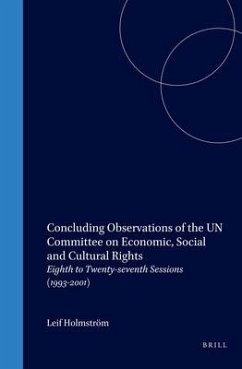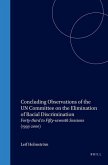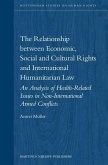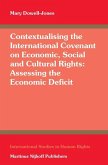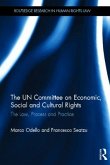Thirty-five years ago, on 16 December 1966, the General Assembly of the United Nations adopted without a vote the two International Covenants on Human Rights. Together with the Universal Declaration of Human Rights, the International Cove-nant on Economic, Social and Cultural Rights and the International Covenant on Civil and Political Rights, including its two Optional Protocols, form what is often referred to as the International Bill of Human Rights. Both Covenants entered into force ten years later. At present, 145 States have ratified or acceded to the Interna-tional Covenant on Economic, Social and Cultural Rights. Under articles 16 and 17 of the Covenant, each State party undertakes to submit re-ports for the consideration by the Economic and Social Council under a programme established by the Council. However, in 1985, the Council decided to set up the Committee on Economic, Social and Cultural Rights to discharge that function - to monitor the implementation of the Covenant by States parties. At its sixth session, in 1991, the Committee adopted criteria for formulating concluding observations after the consideration of a State party report, and at its eighth session, in 1993, the Com-mittee started to use a standard format for the presentation of its concluding observations. The Committee makes a general evaluation of the report and of the dialogue with the delegation, makes note of positive aspects, factors and difficulties impeding the implementation, and of principal subjects of concern. It also makes suggestions and recommendations to the State party concerned. The present volume contains concluding observations adopted by the Committee on Economic, Social andCultural Rights at its eighth to twenty-seventh sessions (1993-2001). Foreword by Mrs. Mary Robinson, the then United Nations High Commissioner for Human Rights.
Hinweis: Dieser Artikel kann nur an eine deutsche Lieferadresse ausgeliefert werden.
Hinweis: Dieser Artikel kann nur an eine deutsche Lieferadresse ausgeliefert werden.

